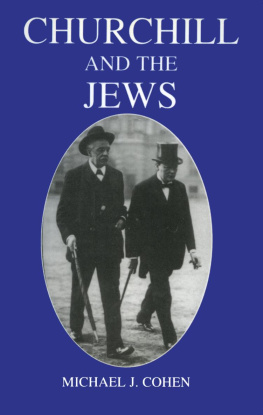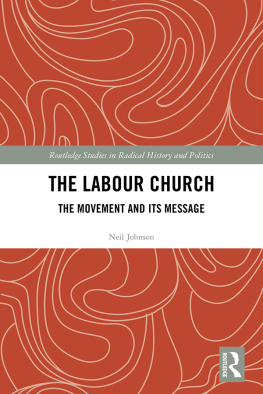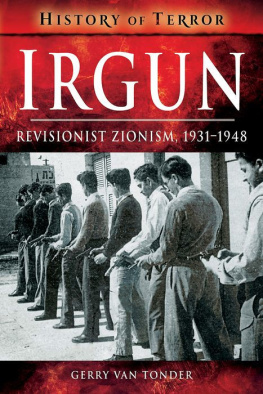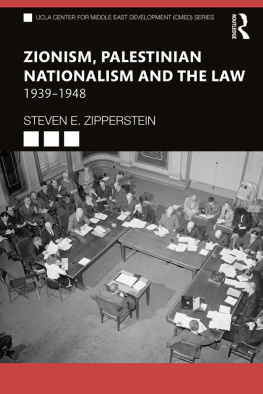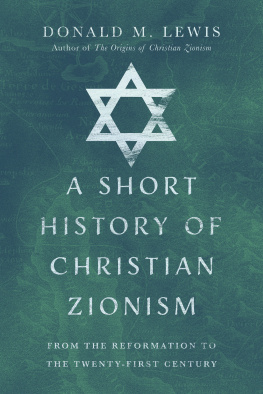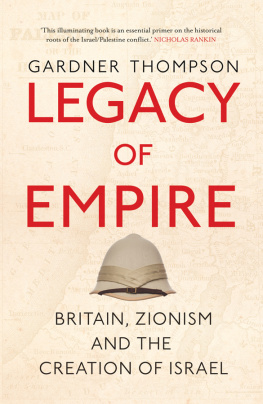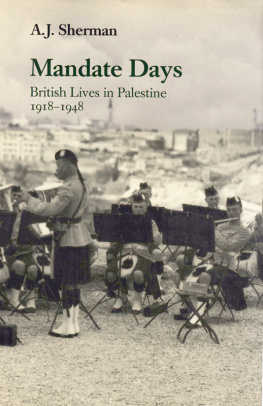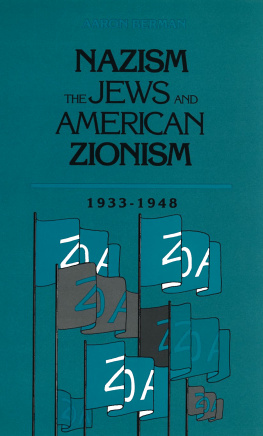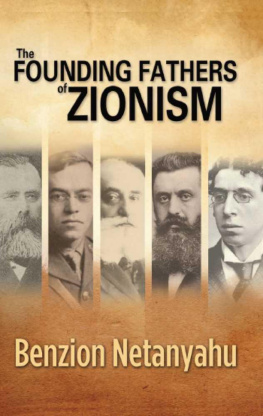THE BRITISH LABOUR MOVEMENT AND ZIONISM 19171948
THE BRITISH LABOUR MOVEMENT AND ZIONISM 19171948
Joseph Gorny
Professor of Modern Jewish History, Tel-Aviv University
First published 1983 in Great Britain by
Routledge
2 Park Square, Milton Park, Abingdon, Oxon, OX14 4RN
270 Madison Ave, New York NY 10016
Transferred to Digital Printing 2007
Copyright 1983 Joseph Gorny
British Library Cataloguing in Publication Data
Gorny, Joseph
The British Labour movement and Zionism 19171948.
1. ZionismHistory 2. Labor and laboring classesGreat BritainHistory 3. SocialismGreat BritainHistory I. Title
335.10941 HD8395
ISBN 0-7146-3162-0
All rights reserved. No part of this publication may be reproduced, stored in a retrieval system, or transmitted in any form, or by any means, electronic, mechanical, photocopying, recording, or otherwise, without the prior permission of Routledge.
Typeset by John Smith, London
Cover design by Zena Flax
Publishers Note
The publisher has gone to great lengths to ensure the quality of this reprint but points out that some imperfections in the original may be apparent
To my wife
One of the most difficult questions was Palestine. To most problems one can apply general principles, but to Palestine no. By no other question have I been so puzzled.
Fenner Brockway, Inside the Left
Contents
Considering the small size of Palestine, and the many other problems which beset the British Empire between 1917 and 1948, the amount of research done and the number of published works on this little corner of Britains vast patrimony is considerable. It is an area on which myriad researchers and writers have focussed their attention, so much so that one might well imagine every corner had been examined and the last word said on matters grave and minor.
Anyone reading this book will see that this is not so. For here is a facet of Britains Palestine policy and attitudes which has been previously overlooked. Nor is it an issue of minor concern; the reader will quickly discover both the fascination and the significance of the British Labour Movements attitudes and policies towards Zionism during these thirty-one crowded and controversial years.
Through his researches, Professor Gorny has uncovered a strange, at times disheartening, but always fascinating story which seldom accords with ones preconceptions, or with what has been written hitherto.
This book will surely become, as it deserves to be, one of the standard and much-consulted works on a subject not only absorbing in itself, but of continuing relevance today.
MARTIN GILBERT
Merton College,
Oxford.
August 1982
The history of Zionism is the history of Jewish peoples desire for complete transformation of their national existence. The Zionists wanted self-determination for the Jewish people, their return to the historical homeland, and political independence. They also believed in the vital need to transform the economic and vocational structure of the Jewish masses, and dreamed of a cultural renaissance. At the same time, they hoped to establish a new kind of relationship with the nations of the world, thereby drastically altering the international status of the Jewish people.
This latter aspiration can best be defined as a desire to abolish the dependence on other peoples which stemmed from the anomaly of Jewish existence in the Diaspora, and to establish interdependent ties with other nations, based on identity of political interests, shared cultural and religious traditions and ideological affinity. The cornerstones of this interdependence theory were: the interests of the Powers in Palestine; the wish of various countries to solve their own Jewish minority problems; a common cultural background rooted in the Bible, and its values; and the close ideological and organizational association of Palestine labour with the international labour movement.
On its tortuous road from dependence to interdependence, Zionism won singular victories but also experienced bitter failures. It would have been well-nigh impossible for the major political achievements of Zionism to be gained without the assistance of other nations, yet these same achievements were often won in the teeth of those very nations resistance.
The relationship between Britain and the Zionist movement in the inter-war period can serve as a striking example of the historial fate of the interdependence principle, on which the Zionist movement hoped to base its relations with the rest of the world.
For the Zionists a new era was ushered in, with great hopes, towards the end of the First World War, when the Balfour Declaration was bestowed on them by the British Government. This achievement appeared to demonstrate the validity of Zionist theory, since the motives behind the Declaration included political interests, shared cultural tradition and ideological affinity. The era ended thirty years later, with profound bitterness and resentment on both sides, culminating in political and military confrontation. The shared traditions and mutual ideals were swept aside by the force of events; interests held sway and these, needless to say, were fluid.
Moreover, as if to make matters worse, the painful confrontation between the two peoples came at a time when the Zionist and British leaderships shared certain social beliefs and maintained long-standing personal and organizational contacts. The ties between Attlee, Bevin and Ben-Gurion, all socialists, might have been expected to be much stronger than those linking Lloyd George, Balfour and Weizmann. Yet history proved the reverse to be true. How did the rift between the two socialist movements occur? And why was it the British labour movement which dealt Zionism one of its most bitter blows? This question serves as the main theme of our study.
From the early days of Zionism, socialisms attitude towards it had been complex and problematic. Sympathy with Jewish suffering and condemnation of antisemitism went hand in hand with reluctance to acknowledge Jewish nationhood, and with a negative view of Zionism as the product of a bourgeois ideology and class interests. It was this attitude which prevented the admittance of Poalei Zion, the left-wing Marxists party, to the Second International, since as a Zionist party it postulated the existence of a national Jewish working class. Although this viewpoint began to change towards the end of the First World War, it was still only the social-democratic parties which, albeit hesitantly, recognized the national status of the Jewish people and agreed to see Zionism as one of the solutions to the problem of Jewish existence among the nations. They never, however, regarded it as the exclusive and comprehensive solution.
Hence, British labours relationship with Zionism was founded not on general socialist principles, but on the special and unique bond between this movement and Zionism in general, and the Jewish labour movement in particular. It was born out of sympathy on the part of the British and faith on the part of the Jews, and was grounded in belief in the advantage of establishing a Jewish socialist society in Palestine. This same society, however, was later abandoned by a Labour Government to attack by Arab armies equipped with British arms and trained by British officers.


